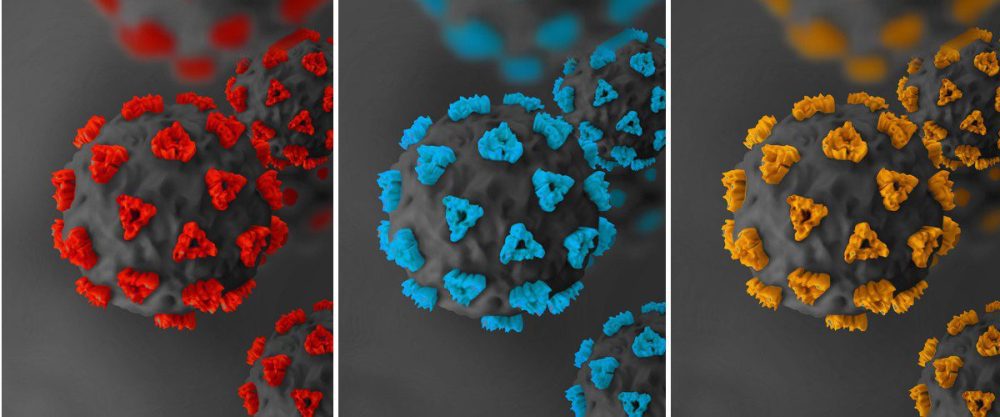A study on one woman raised the possibility that new HIV variants may be derived.
A 36-year-old South African woman with end-stage HIV carried the coronavirus for 216 days and accumulated more than 30 mutations, according to a new study published in medRxiv. This case was published as a preprint in medRxiv, so it was not peer-reviewed. The woman remained anonymous.
According to the study, the coronaviruses mutated 13 times in the spike protein, a part known to help the virus avoid an immune response, and 19 other mutations occurred that may have altered the behavior of the virus.
According to the Los Angeles Times, it is not known whether she transmitted her mutations to others.
Tulio de Oliveira, a geneticist at the University of KwaZulu-Natal in Durban and author of the study, told The Times, “If more such cases are found, the prospect arises that HIV could be the source of new variants, simply because patients may carry the virus for longer.”
Dr. Juan Ambrosini, associate professor of infectious diseases at the University of Barcelona, said, “But this is probably the exception rather than the rule for people living with HIV because long-term infection requires severe immunodeficiency. In this case, the woman in the example was immunosuppressed.
Dr. Ambrosini added that these findings are important in the fight against Covid-19, as patients can be a constant source of transmission and evolution of the virus.
Study author De Oliveira told The Times that the woman’s case could easily have gone unnoticed because she had only mild symptoms of Covid-19, although she was still a carrier of the virus.
The researchers were able to identify this case because it was included in a study of the immune response to Covid 19 in 300 HIV-positive individuals.
In addition, the researchers found that four other HIV-positive individuals carried the virus for more than a month.
Only one case has been published in which an HIV-infected person carried the virus for a prolonged period of time.
Dr. Ambrosini added that immunosuppressed patients also carry the virus for long periods of time for other reasons. For example, some kidney transplant patients have tested positive for almost a year.
The case study findings may be especially important for Africa, where 20.6 million of the 37.6 million people will be living with HIV by 2020. The World Health Organization has warned that rising infections could lead to the third wave of Covid-19 on the continent.
Apart from this, you can read more articles from Health Desk – Indian Variants of Coronavirus in Bangladesh, Black fungus in Bangladesh, and Superbug can lead to the next pandemic in India.







































